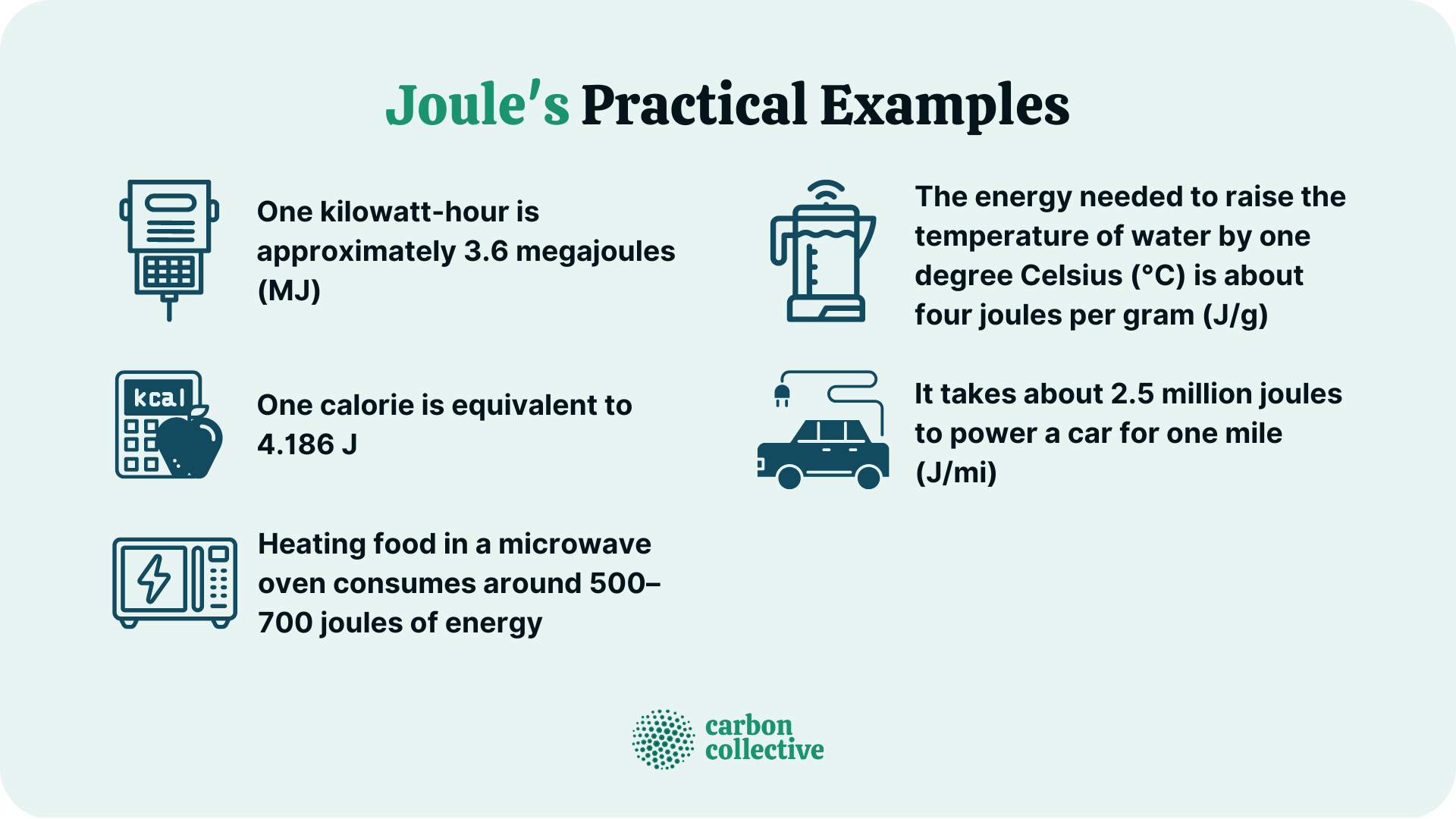A joule (symbol: J) is a unit of energy equal to the work done by a force of one newton (N) moving through a distance of one meter (m). In other words, it takes one joule of energy to move a weight of one newton one meter.
History
The history of the joule goes back to 18th-century scientist and mathematician, James Prescott Joule.
He was interested in understanding the relationship between heat and mechanical work. He conducted a series of experiments that demonstrated a direct relationship between the two.
His experiments led to the development of the mechanical theory of heat and joule's law. Joule's law is a mathematical description of the rate at which heat energy is produced from electric energy by the resistance in a circuit.
Joule's work laid the foundation for the field of thermodynamics.
Hence, the SI unit for work, the joule, was named in honor of his significant contributions to science.
Practical Examples
Key Takeaways
- A joule is a unit of energy equal to the work done by a force of one newton moving one meter
- Joule was named after 18th-century scientist and mathematician, James Prescott Joule
- James Prescott Joule conducted a series of experiments that demonstrated a direct relationship between heat and mechanical work
- Joule's law is a mathematical description of the rate at which heat energy is produced from electric energy by the resistance in a circuit
FAQs
1. What is a joule?
It is a unit of energy equal to the work done by a force of one newton moving through a distance of one meter.
2. How was it discovered?
James Prescott Joule conducted a series of experiments that demonstrated a direct relationship between heat and mechanical work. This led to his development of the mechanical theory of heat and Joule's law, a mathematical description of the rate at which heat energy is produced from electric energy by the resistance in a circuit.
3. What does one newton mean?
One newton is the force required to accelerate a mass of one kilogram at a rate of one meter per second squared.
4. Why do we need to understand joules?
It is important because it is the SI unit for work. It helps us to measure the energy transferred or used in different situations.
5. What are some practical applications of joules?
Some practical applications include heating food in a microwave oven, powering a car for one mile, and raising the water temperature by one degree Celsius.

